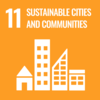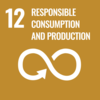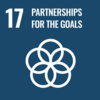Julian Greaves, Sustainability Manager
Finalist
Bath Spa University
Initially arriving at Bath Spa University, I went on a decarbonisation mission, taking on the responsibility with limited resources and a fair deal of scepticism from senior leaders. Great strides have been made since.
We have become much more sustainable, not only in terms of reduced Scope 1 & 2 emissions but also via a combination of strategy, staff development and curriculum design. I have developed initiatives that have changed management mindsets, saving the University c. £800,000 per year on energy alone and raising our profile amongst peers, particularly via the P&P University “Green” League. I developed the second Energy Performance Contract ever performed in the UK HE sector.
Going above and beyond, I've thought BIG, influencing a ground-breaking UK HE sector's first Power Purchase Agreement for renewable energy and, with consortia, persuading our electricity provider to supply us with 100% certified renewable electricity before it was fashionable.
Annual carbon savings achieved with the initiative:
- CO2t savings 2022/2023: 2550 (Actual)
- CO2t savings 2023/2024: 2600 (Estimated)
- CO2t savings over the life cycle of the project: 24,500 over 10 years.
Top 3 Learnings
- Build a solid business case: Building a solid business case, which demonstrates not only financial cost-effectiveness, but benefit to the environment, the business and to staff and students is essential.
- Think BIG: The old maxim often advised in relation to financing energy conservation measures in organisation of, implementing the “low hanging fruit” to gain the confidence of senior management can only ever get you so far. The result of this approach is that the difficult, long-payback projects just get more difficult to finance as time goes by. Much better is to develop a programme of works, bundled together in such a way as the short-term payback projects can “carry” the longer-term projects, in a single programme with an acceptable length of return.
- Embrace the Failures: Be open about the projects that don’t work and understand why they haven’t worked. Share this understanding to prevent it happening again in your and other organisations. Learn from others what hasn’t worked and why.



